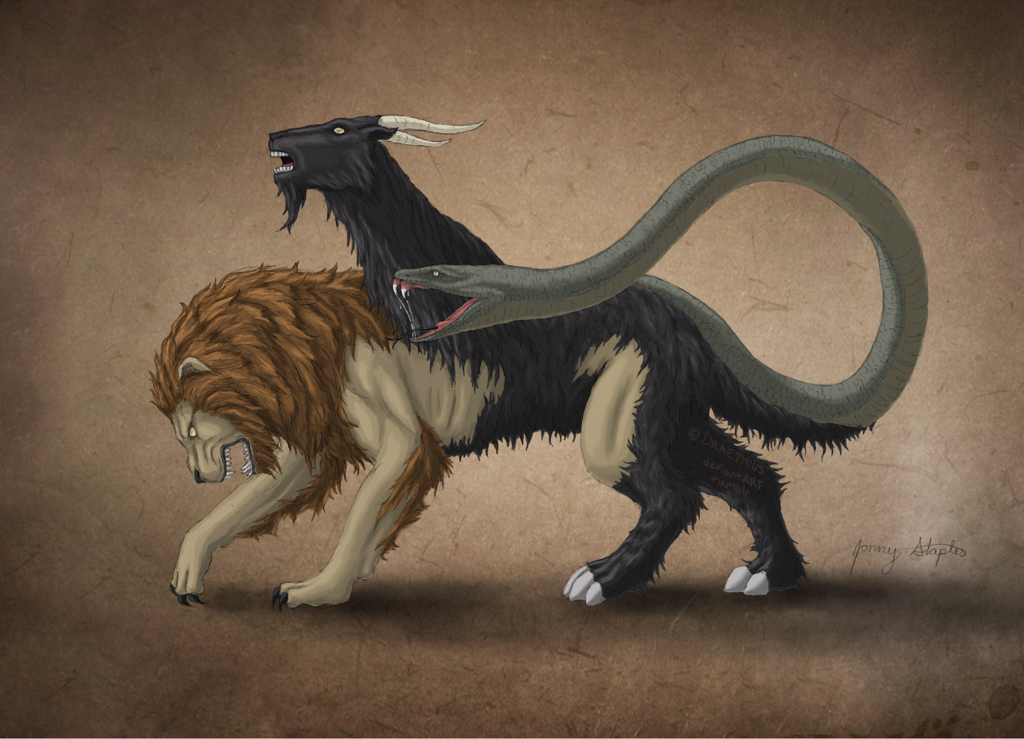

Wu says the funding ax has greatly affected chimera research. In 2015, the NIH banned taxpayer funding for chimera research, which it moved to lift in 2016 - predictably, groups like the US Conference of Catholic Bishops and PETA aren't keen on the idea.ĭr. There's also a concern based more in science fiction than reality, but here goes: What if those human cells somehow migrate to the developing pig's brain and make it more human? Like, pigs with human hair, reproductive cells, or the most extreme scenario, a real Babe? Pro-life groups and animal rights activists in particular are worried about the implications of creating pigs bred exclusively for organ harvesting. In other words, the ultimate goal is to improve human life, and chimeras are a new technique that might be useful for our continued survival as a species.īut the National Institutes of Health (NIH), which controls access to government-supplied research funding, isn't on board. Wu, the experiment is a means of "taking advantage of in vivo developmental principles perfected by millions of years of evolution" and using them to better people's lives - whether it’s genetically matching organs for patients or testing new medicines safely with no human guinea pig necessary. How ethical is creating pigs with human organs?Īccording to Dr. "The breakthrough can come in a few months or a few years," he says. Scientists haven't figured that out yet, and doing so anytime soon would be, as Dr. One of the biggest challenges is that pig pregnancy only lasts about 112 days, meaning that bun's done in the oven at a much quicker rate. Humans and pigs are another ballgame, last sharing an ancestor nearly 90 million years ago. Rats and mice are relatively close genetically, as you can tell just by looking at them. "And by adding in rat-induced pluripotent stem cells, we have succeeded in creating mice with a functional rat pancreas and heart." "We have discovered which mouse genes are necessary to remove to stop the development of the pancreas, eye, liver, kidney, blood vessels, and heart," Dr. That was the critical step showing researchers it was possible to grow another species' organs in a host body. The institute also created mouse-rat chimeras, proving that rat cells implanted in mouse embryos could develop other organs, such as gallbladders - an organ that rats stopped producing in the 18 million years since separating in evolution from mice. "Success of this approach hinges on the two critical components: zygote gene editing to knock out genes involved in lung development in the developing pig embryo, and establishing appropriate conditions for human stem cell introduction." Jun Wu, a scientist at Salk and the lead author of the institute's paper, which was published in Cell. "Due to its resemblance to humans in anatomy, physiology, organ size, and development, the pig is considered a good host animal," says Dr. Which sounds gross and creepy, but there it is.

Perhaps at this stage you're wondering, "Why pigs?" While some research has focused on sheep, pigs happen to make excellent hosts for human organs. More recently, the Salk Institute in San Diego published data about its pig-human embryo, which developed for 28 days - the first trimester of a pig's pregnancy - before being terminated. So far, none of the animals has been brought to term, and very little peer-reviewed research has been published on the results of these experiments. MIT Technology Review reported that in 2015 about 20 pregnancies of pig-human and sheep-human chimeras were gestated in labs in Minnesota and California. The slightly longer answer is… the science is still developing the most recent experiment only succeeded in demonstrating human cells growing in a pig embryo, a far cry from on-demand pancreas. And not just because you might run into a pigman at a hospital.ĭoes this mean there are human-pig hybrids running around secret labs? If you tend more toward science-fiction dystopias, though, the prospect of breeding pigs with human organs presents some ethical concerns, to say the least. In a nutshell, the hope is that soon we'll be able to grow pigs with human tissue in them, which could help revolutionize a transplant system that has four times more demand than supply. It sounds scary, but the concept has researchers excited for the future of organ transplants, not to mention the implications it has for other areas of biological research and health care. Wait, let's go back to that whole "human-pig embryo" thing for a second.

Known as a chimera - after the cross-species, fire-breathing beast, if you're up on your Greek mythology - it's a massive breakthrough that might bring us one step closer to making human organs from scratch. It sounds like an episode of The Twilight Zone, but it really happened: Scientists have created a human-pig embryo for the first time.


 0 kommentar(er)
0 kommentar(er)
